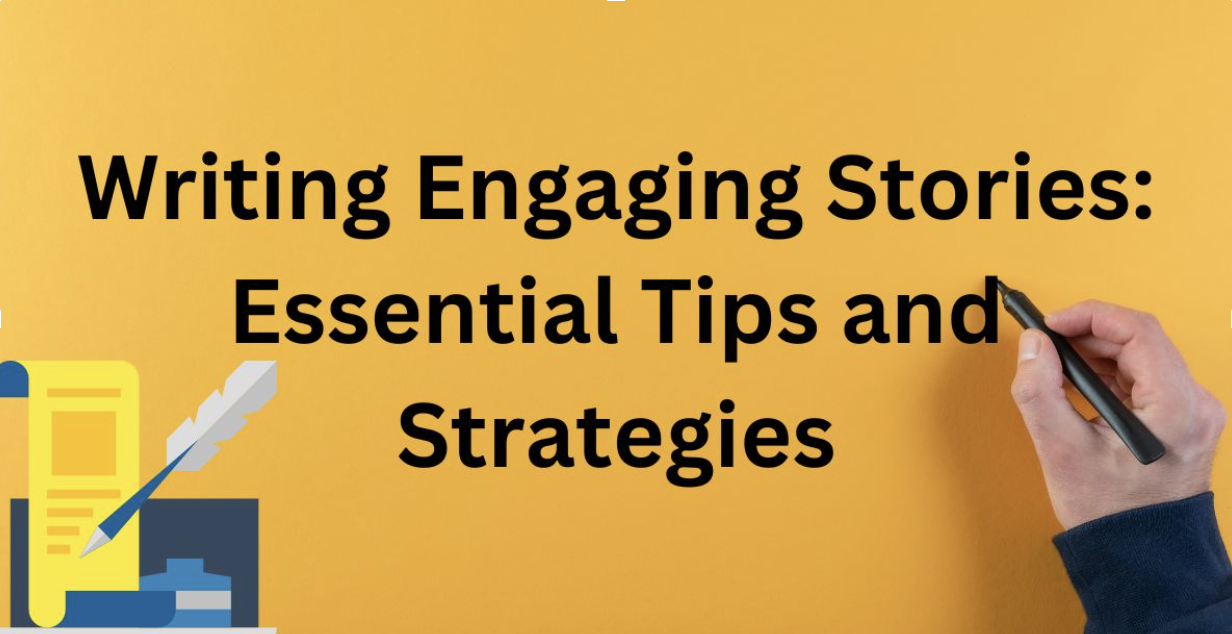Writing Engaging Stories: Essential Tips and Strategies
Leverage AI to write engaging stories

Storytelling is the most effective way to connect with others. Whether writing a novel, a short story, or a poem, a well-told story can grip an audience and make an indelible impression. But with the advent of today's digital age, writing tools such as AI Story Generators and Poem Generators are changing the very nature of storytelling. This article will walk you through some of the tips and essentials needed to create the most interesting stories, whereas AI might be a helpful tool in the process.
Basics of Storytelling
- Key Elements of a Good Story
And at the heart of every good story are a few key components: plot, characters, setting, and conflict. The plot is the series of events that make up your story. It's sort of like a roadmap that guides your readers from the opening line to the very end. Characters are those people, or sometimes animals, or occasionally even objects, that your readers can attach themselves to. They're the ones that perform the story. Setting refers to the where and when the story occurs. It helps in framing the world under which the characters are situated. The conflict, on the other hand, is what brings tension and creates interest in a story. It is the challenge or problem that the characters must overcome.
- Emotion and Relatability
Emotion is the lifeblood of a story. Get them in with emotions and they're far more likely to stay. Think about how you can make your characters' experiences relatable. If readers can imagine themselves in your shoes, then they're really interested in knowing how things are going to turn out. And this emotional connection forms the key to creating a story that can resonate with people.
Creating an Engaging Storytelling
- Strong Opening Line
Your opening is your opportunity to interest your readers. Begin with a curious fact, a question, a joke, an interesting detail, or another attention-grabber. This first line has to pull them in. Don't stop there. Keep them going. Decide the tone and mood you want to set. Should your story feel mysterious, thrilling, or heartwarming? Make sure that's clear from the very beginning so you can direct your readers' expectations.
- Developing Suspense and Pacing
Think about how you can create suspense. Not everything has to be said at once. Let there be an increase in the reader's suspense with the development of your story. Pay attention to pacing—the speed at which your story unfolds. Don't go overboard on action and adventure in the early parts or you'll lose the reader. Conversely, if nothing happens, the reader will get bored. Balance action, dialogue, and description so that a natural rhythm is created, with interest increased rather than lost.
Uses of AI Tools in Storytelling
- AI Story Generators: What They Are and How They Work
The AI Story Generators are creative writing tools. You can visit here to try one of the top online tools to create amazing stories. Base their intelligence on what they have learned to assist a writer in coming up with ideas or plots, or even a complete story. They base their functioning on the analysis of patterns from existing stories and thus, evolving new ones. For instance, when you're stuck on how to continue your story, it will give suggestions that may inspire you to go on. While these tools can definitely support writer's block or even brainstorming, they need to be viewed more as a good starting point than an ending point.
- Enhancing Creativity with AI Poem Generators
An AI Poem Generator might be even more particular since it specializes in poetry. It will definitely help you play around with ideas for forms, structures, or themes. You just need to click here to use the poem generator, put in some keywords or an idea and you will get a poem that you can edit to your liking. AI can only be an inspiration, and everything for the final touch has to be by you: voice and emotion. As much as the help might be that an AI-generated piece of content could provide, the thing that makes the story, the poem, so special is the human touch.
Tactics to Make Your Story Shine
- Revising and Editing are Critical
When you're done writing, the next thing to do is revision and editing. This is a stage at which you refine your narrative by smoothing out inconsistencies and making sure everything flows properly. Begin with reading the story out loud to yourself. This way, you can be able to tell any awkward phrases or mistakes that you may overlook when reading quietly. And it's always good to seek the opinion of others: friends, family, or writing groups. They can give you a fresh perspective and ideas on what might be improved.
- Originality and Cliché Avoidance
What would really help your narrative be a stand-out is originality. It's so important to avoid clichés: those overused phrases or even plot twists that make your story come off as quite predictable. Think instead of how you can put unique spins on well-thought-out ideas. Even if AI tools are brought in for support, use them responsibly. They should enhance your creativity, not replace it. So make sure to add a personal touch to make sure that your story is original and engaging.
Conclusion
Writing an engaging story is a mixture of creativity, technique, and at some point probably even the help of modern tools. So, learn the basic principles of storytelling, craft tight narratives, and use AI tools to cook up stories or compose poems that would really grab your audience's attention. One should remember: AI may be a useful companion in the course of your writing adventure, but it is only your unique voice and perspective that will breathe life into your story. One must embrace traditional and AI-supported approaches to explore new possibilities with storytelling.

